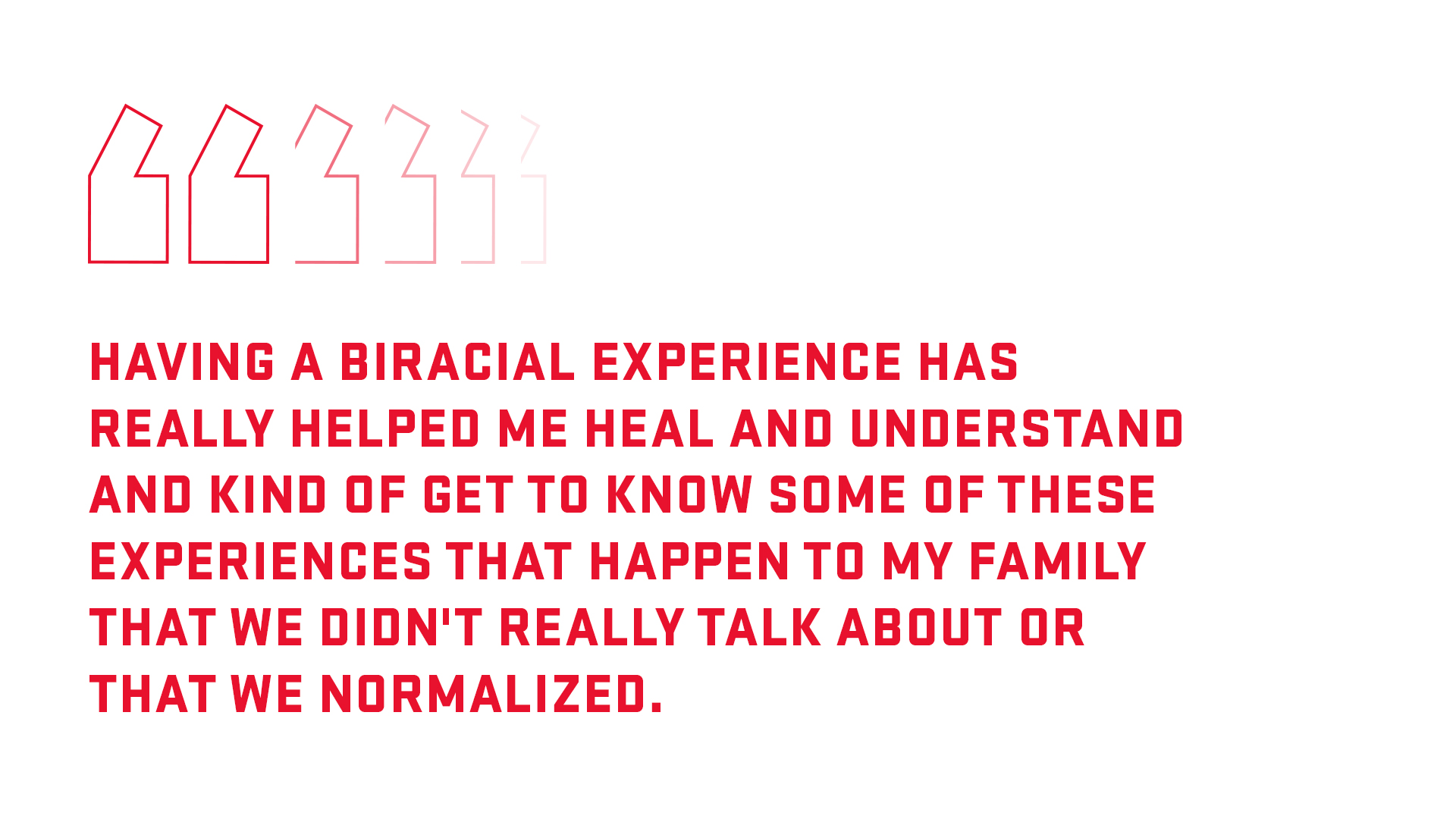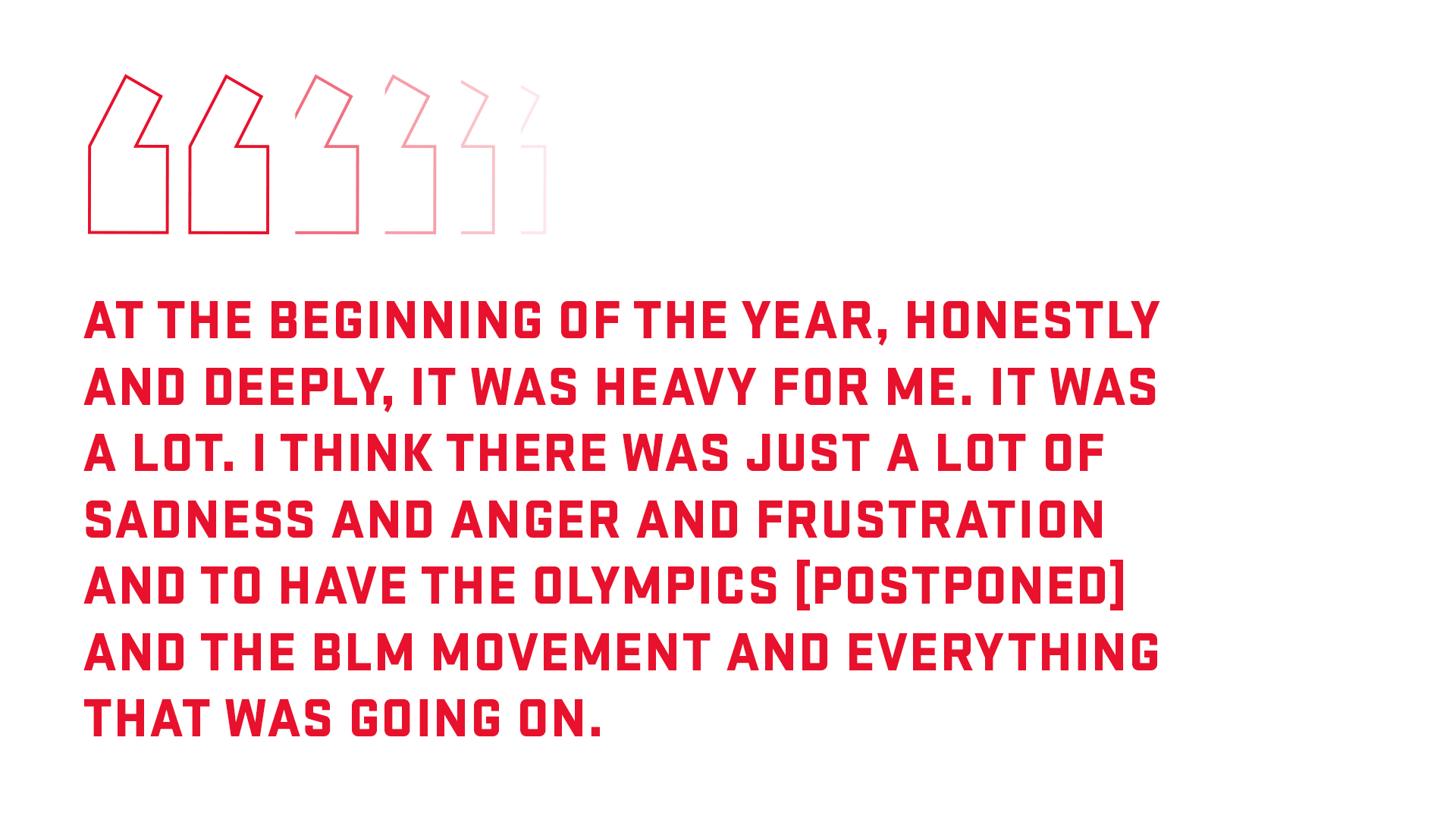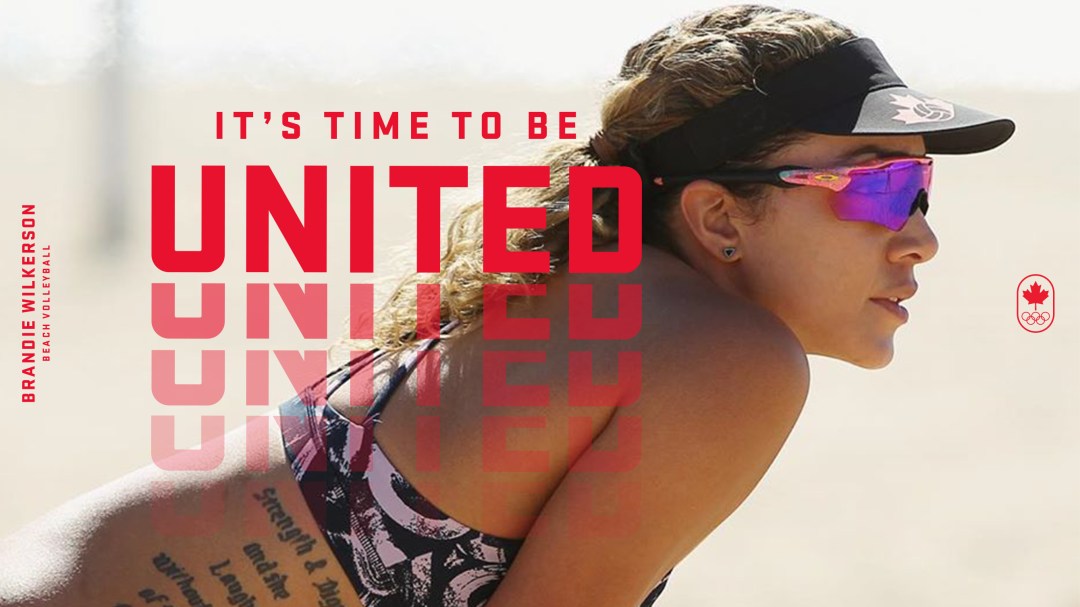Brandie Wilkerson: How 2020 has been a year to learn, reset and find her voice
For one of Canada’s top beach volleyball players, what was supposed to be a year of excitement, firsts, and making her Olympic dream come true was turned upside down.
The postponement of Tokyo 2020 due to the COVID-19 pandemic was both a reality that athletes around the world had to face and something Brandie Wilkerson had never anticipated.
“It was absolutely heartbreaking and I think I cried the first day. I was pretty upset and sometimes it will come up again. I’m like, ‘oh my gosh, I’ve been working years for this. This really felt like this was gonna be my year’,” Wilkerson told Olympic.ca.
Just a couple of months after the International Olympic Committee made the unprecedented announcement in March, Wilkerson faced another challenge – finding her voice against racial injustice during the global Black Lives Matter movement.

Wilkerson moved to Canada at seven-years-old, not speaking a word of English. Despite that, she and her family were excited to move to a country known for its multiculturalism and where she saw differences welcomed and celebrated.
She was born in Switzerland, her mother’s homeland and where her father, originally from Texas, played basketball. Wilkerson says it was never really spoken about at length, but she knew her family was different.
“Racism was something that both of my parents experienced in Europe, us being so close to France in the ‘80s and ‘90s, it wasn’t as it is now. So, there were some difficulties there, even with my stepdad, who is also Black. And then my mom experiencing some racism in the U.S. just being white, married to a Black guy. These things are very obvious for my family,” said Wilkerson.
It was after the death of George Floyd in May 2020 and the subsequent Black Lives Matter protests when Wilkerson really started to question what she had seen and heard in the past.
Being biracial, Wilkerson says there’s a level of privilege, but that everyone’s story is different. It was this revelation that prompted her to have some hard discussions with her family.
“We all understand that we have very different interactions and experiences in our day-to-day life,” explained Wilkerson. “We’re open and talking about these things. We joke about stereotypes and whatever it is. We know we’re kind of a mixed-up crazy family, but to talk about some of the real experiences, and even with my youngest siblings, to have these kinds of very intense conversations […] I think it definitely brought us closer.”
“Having a biracial experience has really helped me heal and understand and kind of get to know some of these experiences that happen to my family that we didn’t really talk about or that we normalized.”
The questions, shared experiences, and listening to others’ stories made her consider what was going on in the world around her. That’s when she turned to Instagram, not only to share what she was feeling, but to commit to finding her voice during this time while learning from others and what they have gone through.
In doing so, she explains that it’s important to reflect on the privilege that she has as a biracial woman, but to also have perspective on what is happening in the world.
“I think because I’m successful and because I present myself a certain way, people have kind of taken me out of this experience that one may have with police, feeling danger,” said Wilkerson. “Like maybe you don’t think of me that way because you think I speak a certain way, or I have done certain things with my life or whatever. So, I think that’s a privilege that I have […] I don’t think it’s fair. And it does take away from the fact that this is a very sensitive issue to me. Even though I have not had personal attacks, my family is deep in that culture. They’re all Black-American, they have experienced these things. So, it is close for me. And so, a lot of people were like, ‘Oh, I get that this is important to you, but it doesn’t really happen to you,’ and I’m just like, that’s the problem.”

No matter a person’s status, experience, race, or ethnicity, Wilkerson explains that it’s important for everyone to feel equal no matter what they’re going through. She recounted her time in California during the height of the Black Lives Matter protests this summer.
“People [are] asking questions or even seeing the protests and people coming together, and in this world of sport, or whether it’s in the NBA or WNBA or wherever, I think these are some big changes. It’s nice to see it’s different than anything that has happened historically and with social media having that kind of first thing […] at the end of the day, the language is out there.”
With room for conversation created, Wilkerson hopes others will learn from what is going on and how change can happen by listening and learning. She says the year has definitely been one that wasn’t anticipated, despite being prepared for anything, but it’s important to roll with the punches.
“At the beginning of the year, honestly and deeply, it was heavy for me. It was a lot. I think there was just a lot of sadness and anger and frustration and to have the Olympics [postponed] and the BLM movement and everything that was going on politically, environmentally. So, it just felt like the weight of the world was heavy on me. But I really began to take steps to figure out, what it is that either I can do to help or to heal. And that has helped me just summarize the whole year as a year of transition. And with every transition and change, opportunities get taken away, but other chances, opportunities and doors, they open up as well. And it’s just a matter of finding what that pivot is […] it’s been kind of focusing and really finding the good, finding the positive in everything.”
Wilkerson and her brother have matching tattoos on their wrists that say, “Que sera, sera”, meaning whatever will be will be, a sentiment she really took into consideration this year. Finding and appreciating the balance between the good and the bad in everything and everyone, represented by the yin and yang tattoo on her chest, is also part of her reflections on 2020.
Living by the mantras etched on her body, Wilkerson and her volleyball partner Heather Bansley are determined that their Olympic dream is not gone, just put on pause.
The duo is finishing their year with several months spent training in Brazil where they can have some quality time with their coach, Rico de Freitas, outside in the sun. Manifesting their Olympic goals in the beauty of the last Olympic host country, they continue to stay positive and live by que sera, sera during these uncertain times.
-With files from Paula Nichols








